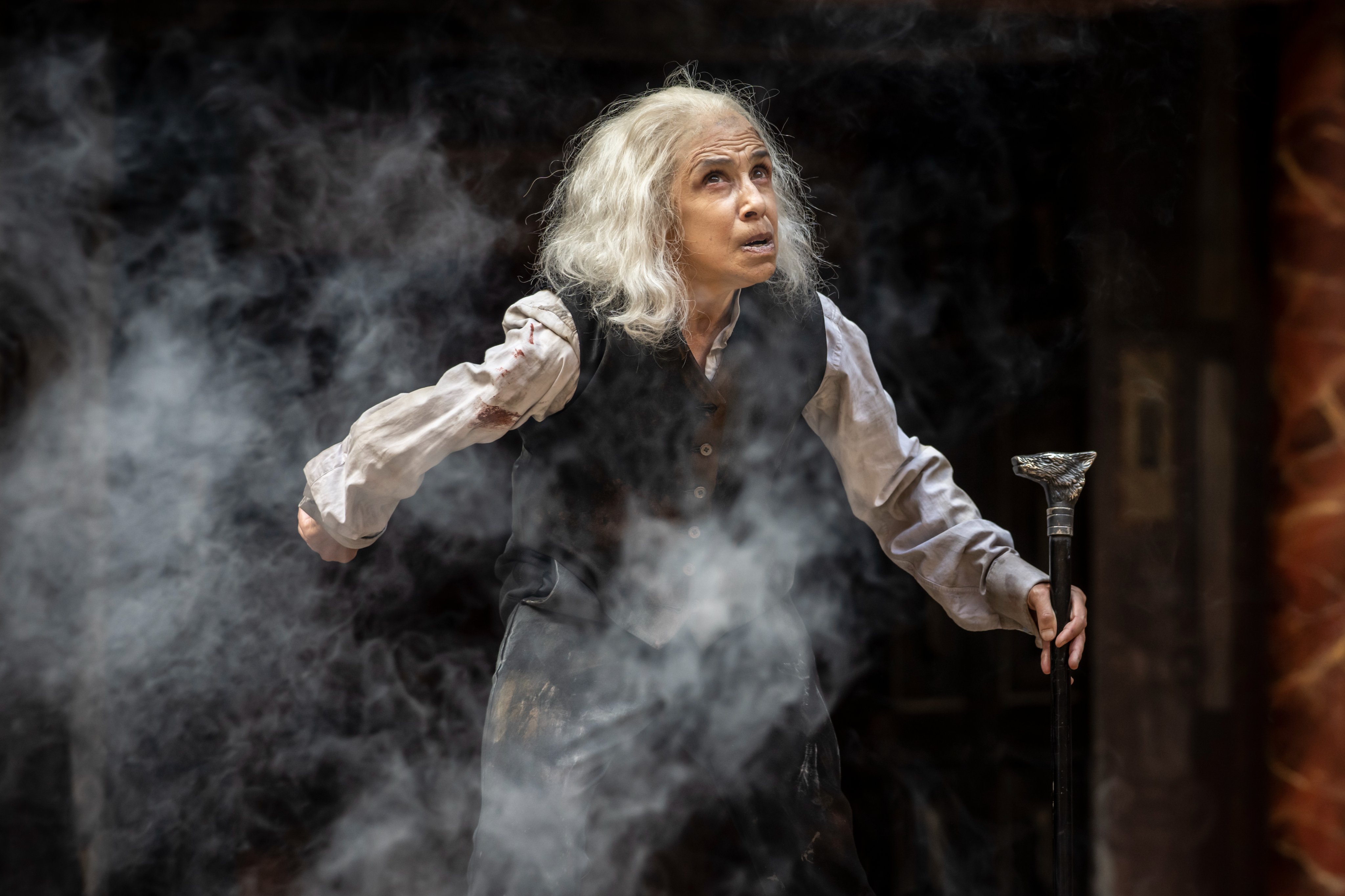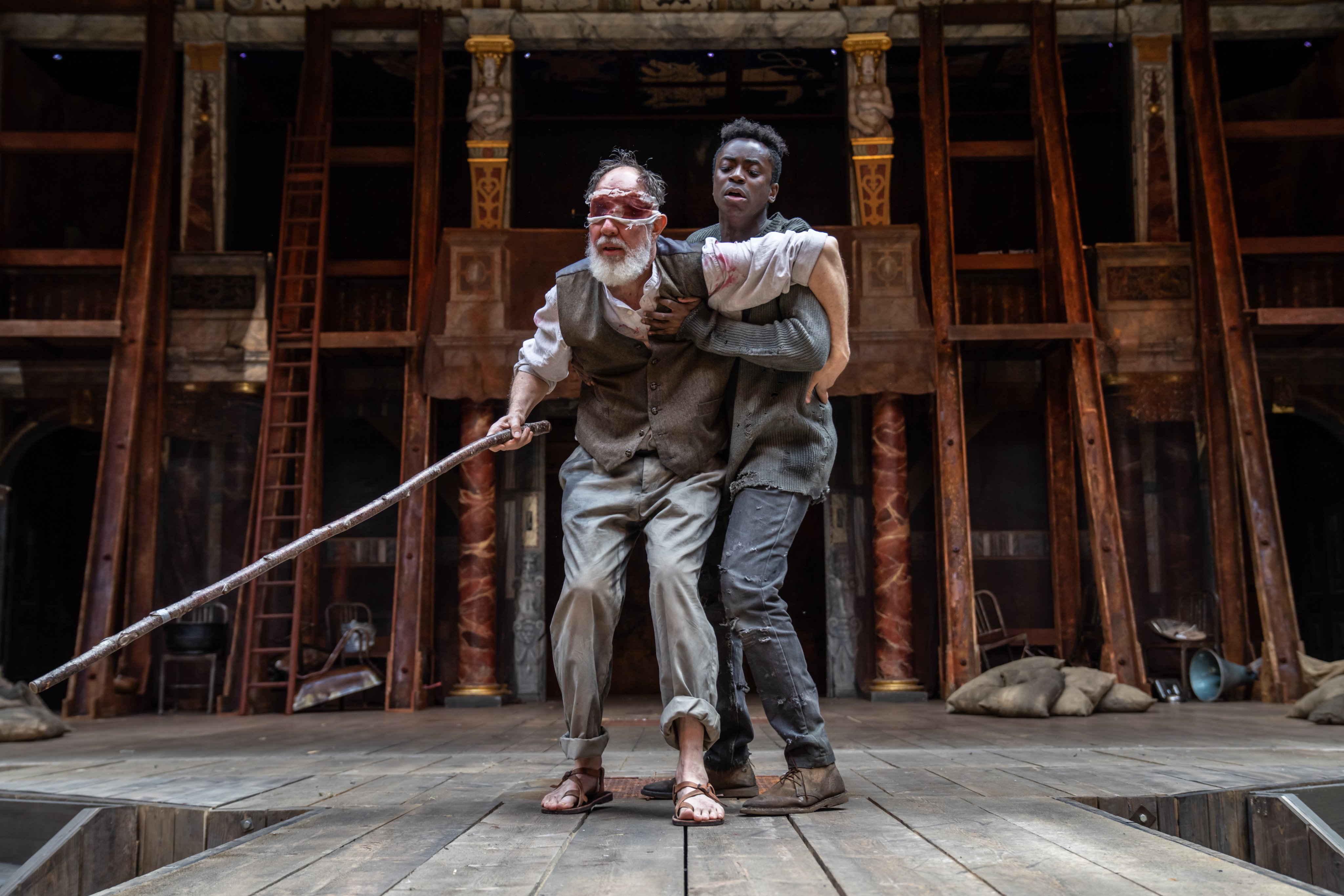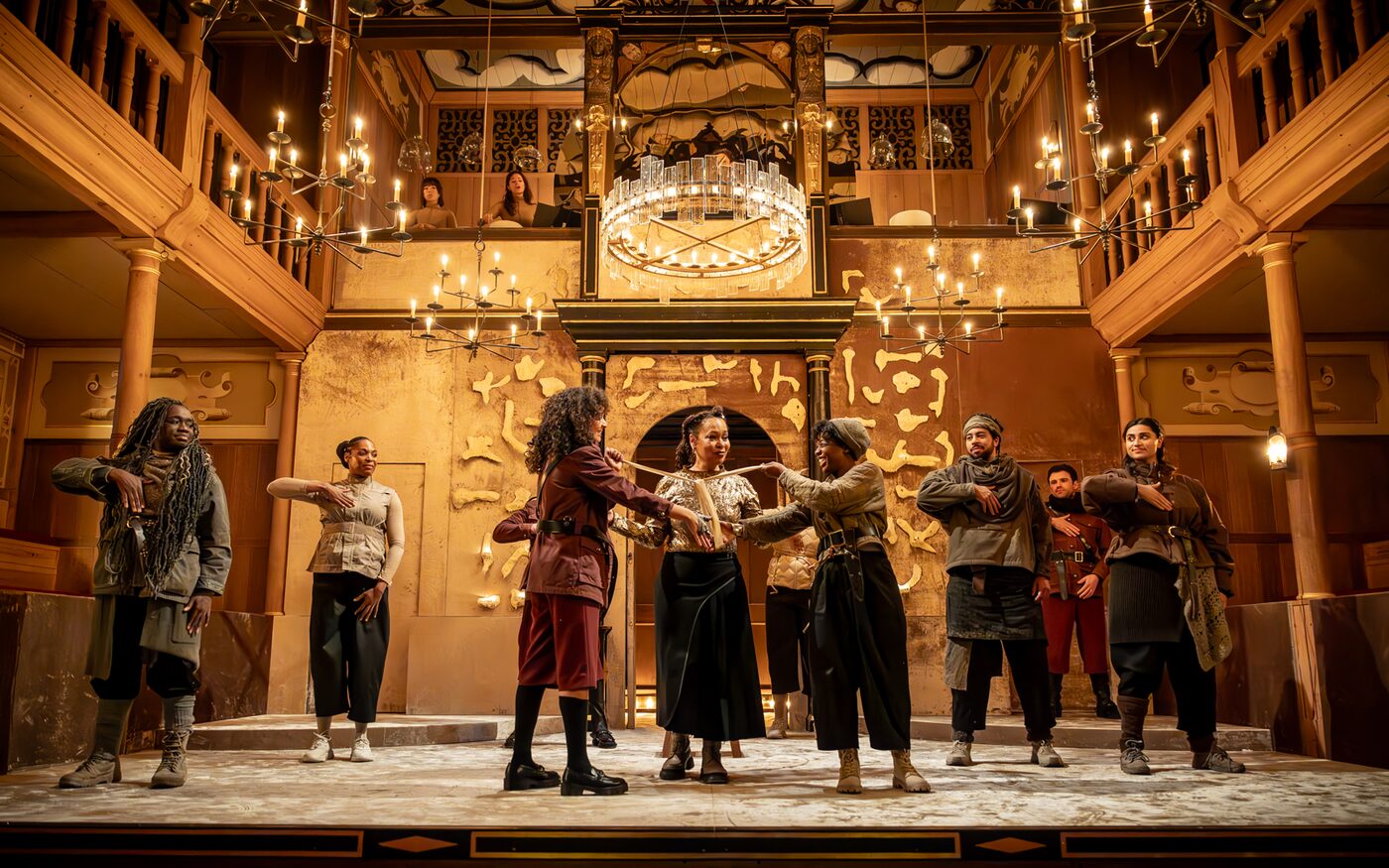by Chris Dobson.
King Lear is a difficult play, with twenty characters who are known variously by their first names or their titles: We have Lear’s three daughters Goneril (Ann Ogbomo), Regan (Marianne Oldham) and Cordelia (Michelle Terry), for instance, but also members of the nobility such as Kent (Gabriel Akuwudike) and Gloucester (Diego Matamoros). Matters are made more confusing when certain figures disguise themselves as other characters, for example Gloucester’s legitimate son Edgar (Kwaku Mills) becomes Poor Tom, an apparently mad beggar who goes around in rags.
 |
| Kathryn Hunter as King Lear. Photo: Johan Persson |
Arresting though a lot of the House of Cards-esque political drama is – and there are moments of gory violence which will make audience members wince – this is not the central concern of Helena Kaut-Howson’s production of King Lear at the Globe, which sees the director reunite with Kathryn Hunter, who plays Lear. Hunter is a unique Lear, encapsulating the ageing king’s fragility as she trundles across the stage either in a wheelchair or with the aid of a walking stick. Hunter and Michelle Terry (who also plays Lear’s Fool) find unexpected comedy in an otherwise bleak play and they make a great pairing. Ryan Donaldson is entertaining, too, as Edmund, ‘the Bastard’ – Gloucester’s illegitimate son who desperately craves power. The Globe, as always, likes to put on a good show, with audiences treated to music, dancing and song. One drawback to the Globe is the rigidity of the stage itself, but designer Paweł Dobrzycki uses rusty ladders to convey a sense of Lear’s kingdom being not only worn-down and decrepit, but also under siege.
 |
| King Lear at the Globe Theatre. Photo: Johan Persson |
The plot of King Lear is frustrating, because all of the death and destruction seems so unnecessary. This is, of course, the point, and therefore the four-hundred-year-old play resonates especially loudly today, when a pointless war in Eastern Europe continues to cost countless lives. Lear might be ‘mad’, but in a world gone mad, perhaps it is only the apparently crazy who are truly sane. This sense of opposites switching places is a central theme of the play – “I stumbled when I saw”, one character remarks, but now that he has lost his eyes, he can see the truth of things: “As flies to wanton boys are we to the gods: They kill us for their sport.”
“Let copulation thrive!” Lear declares, or in modern terms: Make love, not war. It is a message which we should take heed of in these challenging, uncertain times.
King Lear is at Shakespeare’s Globe until 24 July
Chris Dobson is a freelance journalist from the North of England. He now lives in North London and is passionate about theatre, film and literature.














